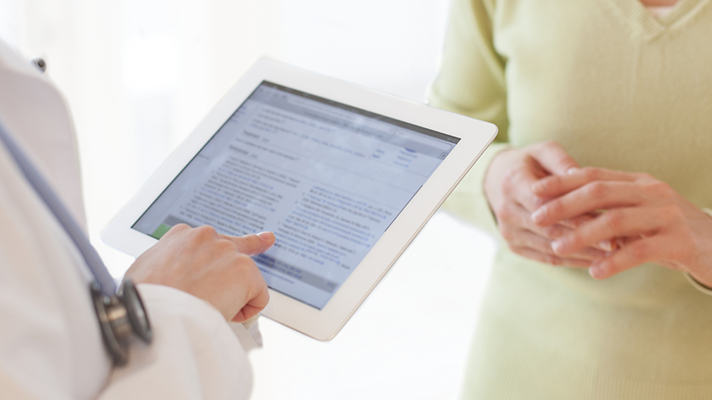
Easy access CME. The American Medical Association has launched an online continuing medical education (CME) tool for healthcare workers. The tool, called AMA Ed Hub, allows clinicians to earn, track and report CME credits across a range of topics and specialities, and includes content from sources like the JAMA Network’s JN Learning and the American College of Radiology.
“The AMA is committed to making medical education easy to access across a physician’s lifetime. By providing physicians with impactful educational experiences in one, centralized location, they will be able to easily find education that fits their practice needs and ultimately leads to better health outcomes for patients,” AMA President Dr. Barbara L. McAneny said in a statement. “Physicians are committed to lifelong learning to continually improve patient care. We also know that physicians are time pressed, so we want to make learning and the process of obtaining credits for that learning as effective and as streamlined as possible.”
…
Another day, another Apple patent. The Cupertino has filed for a continuation patent dealing with a sensor that could be embedded into the Apple Watch strap: a "strain gauge" that would allow the Watch to detect the tightness of the band. Patently Apple first spotted the document, which includes the suggestion of why Apple might want the Watch to be aware of how tight it is. Because the Apple Watch's ECG sensor relies on the band being secure and tight, this would allow the Watch to proactively detect situations where that sensor could be misused, and ultimately increase the accuracy of the device.
...
Easy listening. A University of Plymouth-led team of researchers are building a radio service for dementia patients that will automatically include personalized content to improve their quality of life and ability to remain independent. Backed by a $3.44 million grant, the 50-month Radio Me project will use a commercial bracelet to monitor participants’ vital signs while employing artificial intelligence and electronic diaries to generate seamless medication reminders, soothing music or other content.
"Radio Me will create and use cutting-edge technology, but users will experience it through the familiar and reassuring medium of radio. It is an exciting and hugely innovative project, and a real vote of confidence in our research and the University,” Dr. Alexis Kirke, a University of Plymouth research co-leading the project, said in a statement. “Our partners in Radio Me are all experts in their fields. Some, like BBC Radio Devon and the Alzheimer's Society, we have worked with in the past, and we look forward to continuing these relationships and building new ones as the project progresses."
…
Dollars for drones. Zipline, a company that employs drones to deliver medical supplies, has raised $190 million in two funding rounds and reached a valuation of more than $1 billion, TechCrunch reports.
The Rise Fund, Baille Gifford, GV, Katalyst Ventures, Temasek, Bright Success Capital, Goldman Sachs, Oakhouse Partners, Toyota Tsusho Corp and the Design to Improve Life Fund all participated in the funding, which the company said will be used to further its presence in Africa and expand into the Americas and Asia.
…
Smart bed gets smarter. Sleep Number Corporation’s SleepIQ, a mobile platform for adjusting and monitoring updates from the company’s smart beds, has been updated to offer users personalized insights regarding their sleeping habits and how to improve them. The new functionality comes alongside other features within the platform such as a nightly sleep quality score, a profile that lets users self-report and record their lifestyle information, and a loyalty program that redeems points for gifts.
“As a smart durable with connected technology, we are continually advancing the 360 smart bed’s overall experience through software updates,” Annie Bloomquist, chief product officer at Sleep Number, said in a statement. “The personalized insights now available through SleepIQ are further demystifying sleep and empowering our customers with actionable knowledge to fine-tune their daily habits and improve their overall health.”
…
Machine learning startup gains support. Health at Scale has closed a $16 million Series A investment, which according to TechCrunch was raised entirely from Optum. It will be using this new money to increase its sales and marketing capacity and bring its personalized health prediction product to more health plan, provider system and employer customers.
“For many priority health conditions, the challenge is not a lack of treatment options but the ability to proactively and accurately determine what the most effective treatment is, who should deliver it and when it should be initiated,” Zeeshan Syed, CEO of Health at Scale, said in a statement. “Machine learning is unique in its capacity to enable precision medicine with the necessary precision delivery to maximize impact.”


















